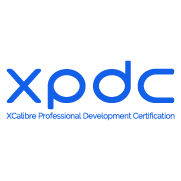| Date | Venue | Fee | |
|---|---|---|---|
| 13 Apr - 17 Apr 2026 | Riyadh – KSA | $ 5,950 | Register Now |
| 20 Jul - 24 Jul 2026 | Barcelona - Spain | $ 5,950 | Register Now |
| 19 Oct - 23 Oct 2026 | Rome - Italy | $ 5,950 | Register Now |
About the Course
Managing contracts can be a complex process that requires a thorough understanding of specific planning and procurement activities. Successful sourcing relationships are based on careful and detailed preparation before signing the contract. A contract manager’s competencies, or areas of knowledge, are enhanced through continuing education and developed through practice. A successful contract manager has knowledge in three areas: technical, conceptual, and human relations.
Both parties need a clear understanding of the type of relationship desired. Therefore, contract management is a systematic process of procuring services and products involving specific phases and associated activities, including planning, purchasing, award, and implementation. Choosing the right Contract Strategy is the primary factor in determining contractor performance. It defines how work will be allocated among contractors, the type of contractors to use, the form of contracts (e.g...., lump sum or reimbursable cost), the allocation of risks, and how benefits or incentives will be used.
This 5-day Certified Professional Contract Manager (CPCM) training course is designed to enable all delegates to achieve an integrated understanding of contract terms and conditions, identify contract management strategies “according to The CMBOK and NCMA’s contract management standards,” and apply its proven techniques, tools and procedures, plus mastering contracts reading, writing and negotiating and planning, and understand best practices in claims management.
Core Objectives
At the end of the training course, delegates will be able to:
- Gain advanced knowledge on contract management disputes, claims, counterclaims, risk, and administration
- Master reading and writing contract processes
- Select the most appropriate contract strategy
- Design the contract to mitigate the risk of disputes and design a dispute resolution system
- Understand the effect of various organisational roles and their impact on the management and execution of the contract
- Improve understanding of various types of contracts and the suitability of each one to the particular requirements of the client and contractor
- Understand and apply the CMBOK and NCMA’s Contract management standards.
- Apply the contracting policies applicable and operational aspects in the industrial and commercial environment
- Improve the understanding of contract risk and the development of effective contingency arrangements
- Obtain an awareness of the legal implications of the contracting process and apply an appropriate remedy for dispute resolution and minimisation of conflict
- Understand and apply best practices in Claims Management
Training Approach
This training course will combine interactive workshops and case studies to facilitate hands-on learning. Delegates will engage in group discussions and practical exercises to apply theoretical knowledge to real-world scenarios, fostering a collaborative and experiential learning environment.
The Attendees
The training course covers many topics that will meet most professional requirements.
It can be introduced to a variety of professionals, including and not limited to the following:
- Contract Managers
- Contract Analysts
- Facilities Managers
- Procurement Managers
- Supply and Logistics Managers
- Sales and Marketing Managers
- Service and Operation Managers
- Consultants
- Financial Officers
- Portfolio and Commercial Managers
- Engineering/Maintenance Managers
Daily Discussion
DAY ONE: CONTRACTS, TERMS, AND CONDITIONS
- Understanding Contracts – A refresher on legal requirements for a contract
- Types of Contracts
- Description of a Contract
- Fundamental Contracting Perspectives – Risk and Price
- FIDIC Forms of Contracts
- Overview of The CMBOK Terms
- Essential Elements of a Contract
- Letters of Intent
- Letters of Comfort
- The Specification and Scope of Work
DAY TWO: MODEL CONTRACTS AND TERMS
- Selecting the Right Model for the Contract
- Force Majeure Clauses
- Indemnities and Insurance Clauses
- Warranty Clauses
- Bonds and Guarantees
- Contract Variation Clauses
- Economic Price Adjustments
- Terms & Conditions for Adjustments
- Price Adjustments using Price Indexes
DAY THREE: EFFECTIVE CONTRACT NEGOTIATION AND RISK MANAGEMENT
- Power and Negotiation
- Stages of Negotiation
- Preparation for Negotiation
- Negotiation Techniques
- What do we mean by risk?
- Risk vs Uncertainty
- Risk Identification, Factors, and Sources
- Risk Analysis Approaches
- Risk Strategies
DAY FOUR: EFFECTIVE CONTRACT PERFORMANCE MANAGEMENT AND BEST PRACTICES IN COST MANAGEMENT
- Work Ordering Process
- Contract Administration
- Reporting Mechanisms
- Quality Assurance and Control
- Recovery Clauses
- Setting the Supplier’s Agenda on Costs and Prices
- Cost and Price Analysis Methods
- Using Economic Price Adjustment Techniques
- Price Transparency and Cost Breakdowns
- Managing the Financial Impact of Contract Variation
DAY FIVE: CLAIMS MANAGEMENT
- When do claims arise?
- Typical Contract Claims – Scope, Delay, Quality, Payment
- Basic and Complex Claims
- Common Subject of Claims
- Managing Change Orders
- Collect and Review Data Regularly
- Highlight Potential Issues as they Arise
- Identifying Specific Claims
- Issue with Applications for Payment
- Mock Examination
Certificate Awarded
Upon successful completion of this training course, participants will be awarded a Certificate of Completion from XCalibre Training Centre, acknowledging their accomplishment. This certificate serves as a testament to their dedication to developing their skills and advancing their expertise in their respective fields.

Course Enquiry

A XCalibre Professional Development Certification will be given to the delegates upon successful completion of this training course.

